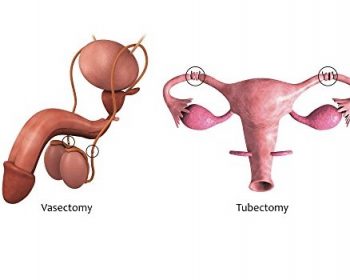
PCOS – Diagnosis and Treatment
Diagnosis
There is no definitive test or gold standard to diagnose PCOS. Typically, women are diagnosed with PCOS when they have at least two of the three symptoms listed below:
- High levels of the male hormone, androgens
- Irregular periods
- Multiple cysts in the ovaries
Generally, the doctor starts with a discussion about the medical story, any particular symptom that brings them to the doctor. Any weight changes and the menstrual cycle is also included in this discussion. A physical exam includes checking for any signs of excess hair growth, insulin resistance, or acne.
The diagnosis of PCOS includes various tests and exams. These are explained below:
- Blood tests – A blood test hormonal assay is done to check various hormone levels like testosterone, FSH, LH, etc. This is done to exclude any other possible causes of menstrual abnormalities or androgen excess that mimics PCOS. Apart from this, blood tests are also done to check glucose tolerance and fasting cholesterol and triglyceride levels.
- Pelvic exam – A visual and manual exam is done by the doctor to inspect the reproductive organs for any masses, growths, or other abnormalities.
- Ultrasound Sonography (USG) – A transvaginal ultrasound is done to check the ovaries for cysts and the thickness of the lining of the uterus for any abnormalities.
- Screening for depression and anxiety – A psychiatrist might be consulted to make sure that the individual has good mental health.
- Screening for obstructive sleep apnea.
Mostly, a PCOS diagnosis is arrived at by ruling out any other condition that can explain the individual’s symptoms.
Treatment
Treatment in PCOS is usually aimed at treating and managing the specific symptoms and overall well-being. It involves lifestyle changes as well as medication or surgery.
Lifestyle changes
Losing just 5-10% of the body weight helps regulate the menstrual cycle and other symptoms. It also helps in improving blood cholesterol levels, reduces cardiovascular and diabetes risk, and lowers blood insulin levels.
Lifestyle changes for attaining a healthy and sustainable weight involve having a balanced diet, regular exercise, consistent sleep patterns, and overall low-stress levels.
A low glycemic index diet that consists of more vegetables, fruits, and whole grains helps manage PCOS better than a weight loss diet.
Studies suggest that 30 minutes of moderate-intensity exercise at least 3 days a week not only helps in reducing weight but also improves ovulation and insulin levels.
Medication
Medication like birth control pills are advised for regulating the menstrual cycle and other medications for symptoms like hirsutism and acne. Birth control pills that contain progestin help restore hormonal balance regulate ovulation and menstrual cycle and protect against endometrial cancer. It also comes as a skin patch and a vaginal ring.
Combining birth control pills containing estrogen and progestin decreases androgen production and regulate estrogen. It helps improve PCOS symptoms. It is also available as a skin patch and vaginal ring.
Metformin is a drug used to treat type II diabetes. Studies have suggested that metformin, when taken in addition to a balanced diet and moderate exercise, leads to weight loss, lowers blood sugar, and regulates the menstrual cycle.
Various other medications help reduce excess hair growth like spironolactone, eflornithine.
- Procedures like electrolysis and laser hair removal treatments are available to get rid of unwanted excess hair.
For enquiries and online appointments, send a message to www.DivakarsHospital.com/contact
You can seek 2nd opinion with Dr Hema Divakar and other specialist doctors through the Divakar’s Hospital app which can be downloaded from Google Play Store or ios here – https://bit.ly/2C5cW1e
Subscribe to Divakars Hospital YouTube Channel and stay updated on videos related to pregnancy and women’s healthcare. Subscribe here – https://bit.ly/3Avct4w







